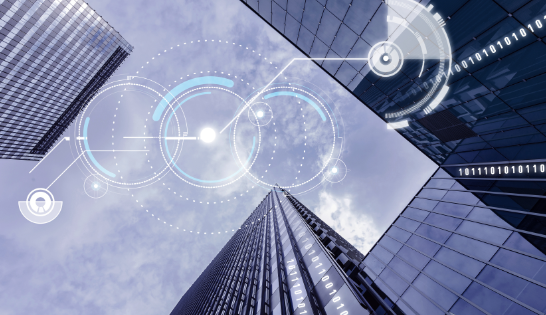Will 5G play a big role in supporting the next generation of smart cities?

Will 5G play a big role in supporting the next generation of smart cities?

As cities become more crowded and complex, the need for efficient, sustainable and smart solutions becomes more urgent. With the advent of fifth-generation wireless networks (5G), cities now have a powerful tool to revolutionize the way they operate and serve their citizens .
5G's high-speed and low-latency capabilities could enable a range of smart city applications, from traffic management and public safety to healthcare and environmental monitoring. In this article, we explore the role of 5G in supporting next-generation, including smart city The benefits and challenges of deploying 5G networks, potential use cases for smart cities, and the key factors that will determine their success.
The benefits of 5G for smart cities
The benefits of 5G for smart cities are numerous and significant. 5G technology has the potential to significantly improve public safety and security. Using fast and responsive 5G networks, smart city systems can collect and analyze massive amounts of data from various as sources, videos surveillance cameras, smart traffic lights and other IoT devices.
First, 5G networks could provide faster and more reliable connections than previous generations of wireless networks. This means cities can collect and analyze real-time data from a variety of sensors and devices, enabling them to make more informed decisions about how to allocate resources and respond to emergencies. For example, 5G could be used to monitor traffic patterns in real time and adjust traffic signals to optimize vehicle flow and reduce congestion.
Another major benefit of 5G for smart cities is its low latency, or the time it takes for data to travel from one device to another. With 5G, latency can be reduced to milliseconds, enabling applications that require near-instant response. This is especially important for applications such as self-driving cars that rely on sensory, real-time data for safe and efficient navigation.
Finally, 5G networks can support a greater number of connected devices than previous generations of wireless networks. This is critical for smart cities, which rely on vast networks of sensors and devices to collect data and provide services to citizens. With 5G, cities can support thousands of connected devices per square kilometer, allowing them to monitor everything from air quality and water levels to parking availability and waste management.
Challenges of Deploying 5G Networks in Smart Cities
Despite the many benefits 5G brings to smart cities, there are some challenges in deploying these networks. One of the biggest challenges is the cost of infrastructure. Building a 5G network will require substantial investment in new infrastructure, including small cells, fiber-optic cables and other equipment. This can be very expensive for many cities, especially those on a budget.
Another challenge is the need to ensure equitable access to 5G networks. While 5G has the potential to revolutionize how cities operate and are served, it is important to ensure that these benefits are distributed fairly across all communities. This means addressing the digital divide and ensuring that all citizens, regardless of socioeconomic status, have access to high-speed, reliable connectivity.
Potential use cases for smart cities
Despite these challenges, the potential use cases for smart cities are broad and diverse. Here are a few examples of how 5G can support the next generation of smart cities:
● Traffic management: 5G can be used to monitor traffic patterns in real time and adjust traffic signals to optimize vehicle flow and reduce congestion.
● Public safety: 5G can be used to support real-time video surveillance and emergency response systems, enabling first responders to respond quickly and effectively in emergency situations.
● Healthcare: 5G can be used to support remote patient monitoring and telemedicine, enabling patients to receive high-quality care from the comfort of their homes.
● Environmental monitoring: 5G can be used to monitor air and water quality, as well as other environmental factors such as noise pollution and temperature.
● Energy management: 5G can be used to optimize energy consumption, allow real-time monitoring of energy usage, and facilitate the integration of renewable energy into the grid.
With 5G sensors and IoT devices, cities can collect data on energy consumption patterns and use artificial intelligence algorithms to optimize energy distribution and reduce waste. In addition, 5G can develop virtual power plants that use distributed energy sources such as rooftop solar panels, wind turbines and battery storage to provide cities with reliable and sustainable energy. This can lead to significant cost savings, increased energy efficiency and reduced carbon emissions.
5G technology promises to change the way we live and work, and smart cities are a perfect example of this transformation underway. A smart city is essentially an urban area that uses data and technology to improve the quality of life of its citizens. They incorporate everything from smart transportation and energy systems to advanced healthcare and public safety programs. With the implementation of 5G networks, there is huge potential for these cities to become smarter.
The future of 5G and smart cities is promising
As more and more cities around the world continue to adopt smart city technologies, 5G will play an increasingly important role in enabling the next generation of smart cities.
With its high-speed data transmission capabilities, low latency and ability to connect a large number of devices, 5G will help drive the next wave of innovation in smart city technology.
One area where 5G could have a big impact is transportation. With 5G, self-driving cars will be able to communicate with each other and with traffic management systems in real time, allowing for smoother traffic flow and less congestion. This not only saves commuters time, but also reduces carbon emissions and improves air quality.
Another area where 5G will bring change is healthcare. With the ability to transmit large amounts of data quickly and reliably, doctors and other healthcare professionals will be able to monitor patients remotely and even perform surgery using robots. This is especially important in rural areas where access to health care is limited.
5G will also play a key role in enabling the next generation of augmented and virtual reality experiences. With its low latency and high bandwidth, 5G will enable high-quality, immersive content to be played on mobile devices and wearables, opening up new opportunities for entertainment, education and training.
The future of 5G and smart cities is bright, with the potential to transform nearly every aspect of urban life. However, there are still challenges to be addressed, such as ensuring that the benefits of smart city technologies are distributed fairly and that data privacy and security issues are addressed. However, with careful planning and investment, the potential benefits of 5G and smart cities are enormous, and cities around the world are already starting to realize it.